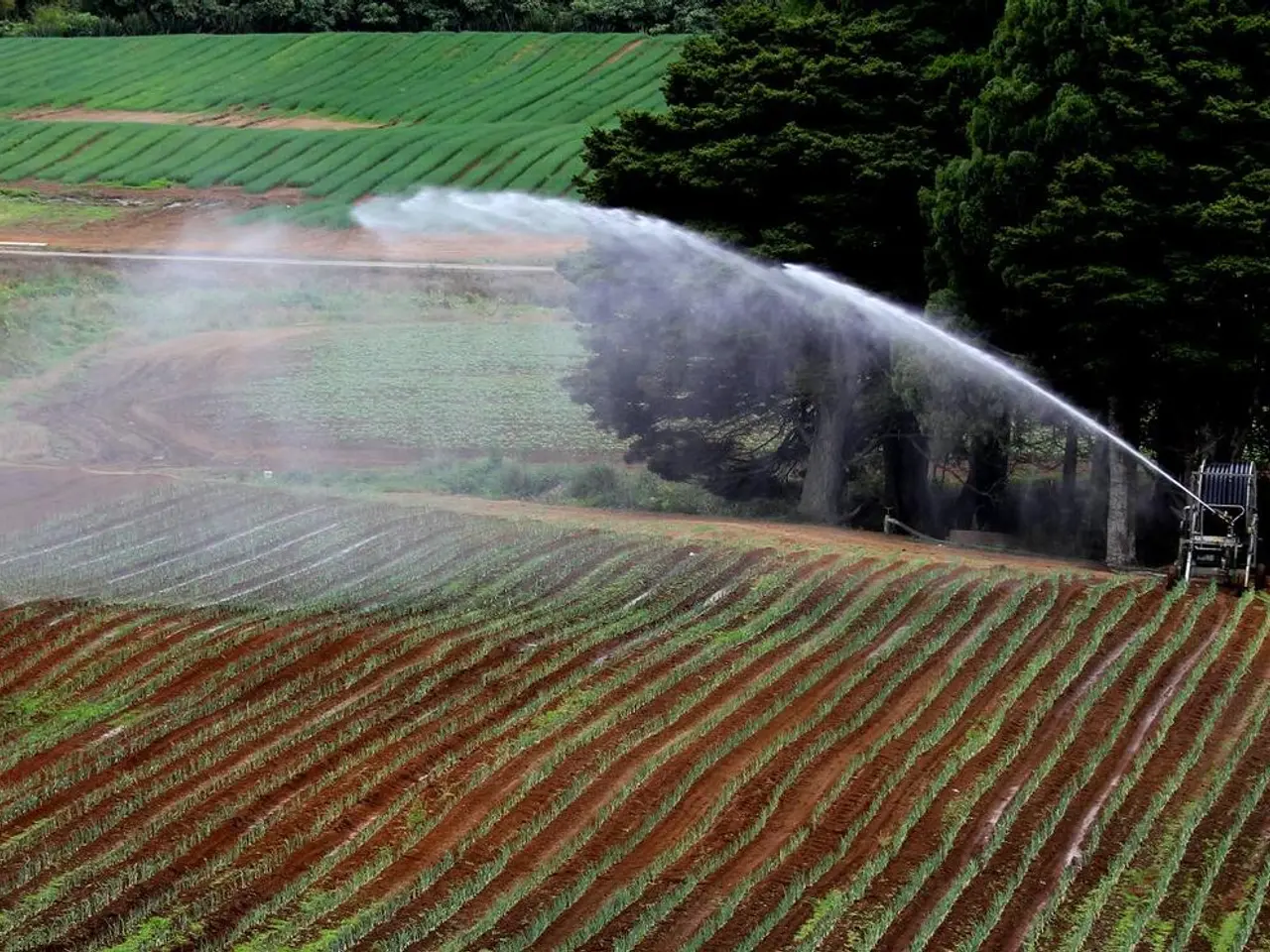Cultivating and Protecting the Planet
In a bid to create a more sustainable and peaceful world for future generations, organic farming has emerged as a promising solution. This farming method, which prioritises natural processes over artificial fertilisers, pesticides, and herbicides, not only benefits farmers but also the environment. However, promoting organic farming comes with its own set of challenges.
**Challenges in Promoting Organic Farming**
One of the main obstacles is the lower yields and higher input costs associated with organic farming systems. Due to restrictions on synthetic inputs and modern technology, these farms often produce lower yields compared to conventional agriculture, leading to higher production costs, more time investment, and greater transportation and storage challenges.
Small and mid-sized organic farms may also struggle with economies of scale, making it harder to compete against larger conventional operations. Access to markets, especially in regions with less developed organic value chains, can be limited for new entrants.
The transition from conventional to organic farming involves a period of lower productivity and income before certification is achieved. The certification process itself can be costly and complex, deterring some farmers. Mandating a shift to organic-only farming could reduce overall food availability and increase prices, potentially threatening food security and consumer choice. Organic farmers also face heightened risks from climate variability and global market instability.
**Solutions and Emerging Opportunities**
Despite these challenges, there are practical and policy-driven solutions that can help promote organic farming. Advances in technology, such as blockchain for traceability, smart labeling, and AI-driven supply chain management, enhance transparency, build consumer trust, and optimise resource use.
Integrating regenerative agriculture, agroforestry, and cover crops improves soil health, boosts biodiversity, and supports carbon sequestration, increasing long-term resilience. Government incentives, certification aid, and supportive policy frameworks can incentivise organic adoption and ensure the sector’s resilience and competitiveness.
Strengthening domestic and local demand through farmers’ markets, direct-to-consumer models, and subscription services creates stable revenue streams and reduces vulnerability to global market shocks. Education and community networks, including field days, workshops, and knowledge-sharing platforms, help farmers adopt innovative management practices, reduce costs, and foster community support for challenges such as labour shortages and market access.
**Key Trends Driving the Organic Sector**
The organic sector is witnessing significant growth, driven by increasing consumer interest in health and sustainability. Supermarkets are expanding affordable organic options, making organic food more accessible. The demand for functional and sustainable foods is on the rise, driving demand for organic and plant-based products. Smart technologies and online sales channels are modernising the organic supply chain.
**A Path Forward**
Promoting organic farming for a sustainable future requires balancing productivity, profitability, and environmental stewardship through a combination of innovation, policy support, and community engagement. Organisations like Getfarms, which supports farmers and customers in organic farming, are playing a crucial role in advancing sustainable agriculture and organic farming practices.
Getfarms acts as a platform to buy agricultural land near Chennai and helps establish connections between customers and organic farmers. By helping customers find nearby organic farmers and buy fresh, organic products, Getfarms reduces the environmental impact of long-distance food transportation. As governments and organisations worldwide recognise the importance of promoting organic agriculture, initiatives like these align with the principles of individuals looking for better, more sustainable food options.
Organic farming is more than just a method of agriculture; it is a commitment to caring for the Earth and all of its inhabitants. By overcoming the challenges and seizing the opportunities, we can ensure a sustainable future for all.
- Science in the field of environmental-science and agricultural research plays a crucial role in developing sustainable farming practices, such as organic farming, to promote a peaceful and sustainable world for future generations.
- As the home-and-garden sector grows, there's an increasing demand for sustainable-living products, with more consumers opting for organic food and organic farming practices to support their eco-friendly lifestyle choices.
- To create a sustainable future, it's essential to adopt integrated approaches that combine innovation in technology, smart policies, and community engagement, such as support from organizations like Getfarms, which aims to bridge the gap between organic farmers and consumers.




